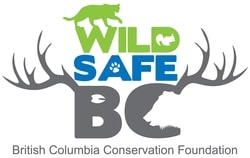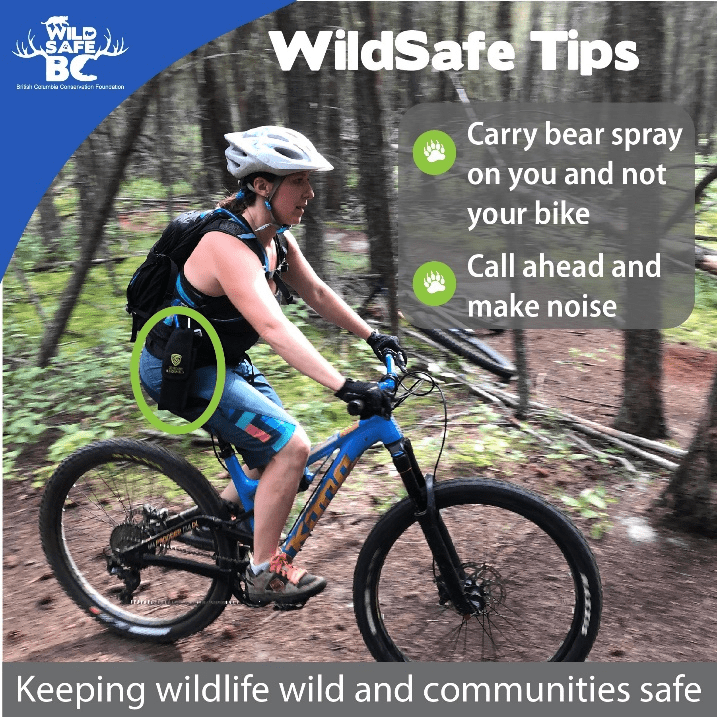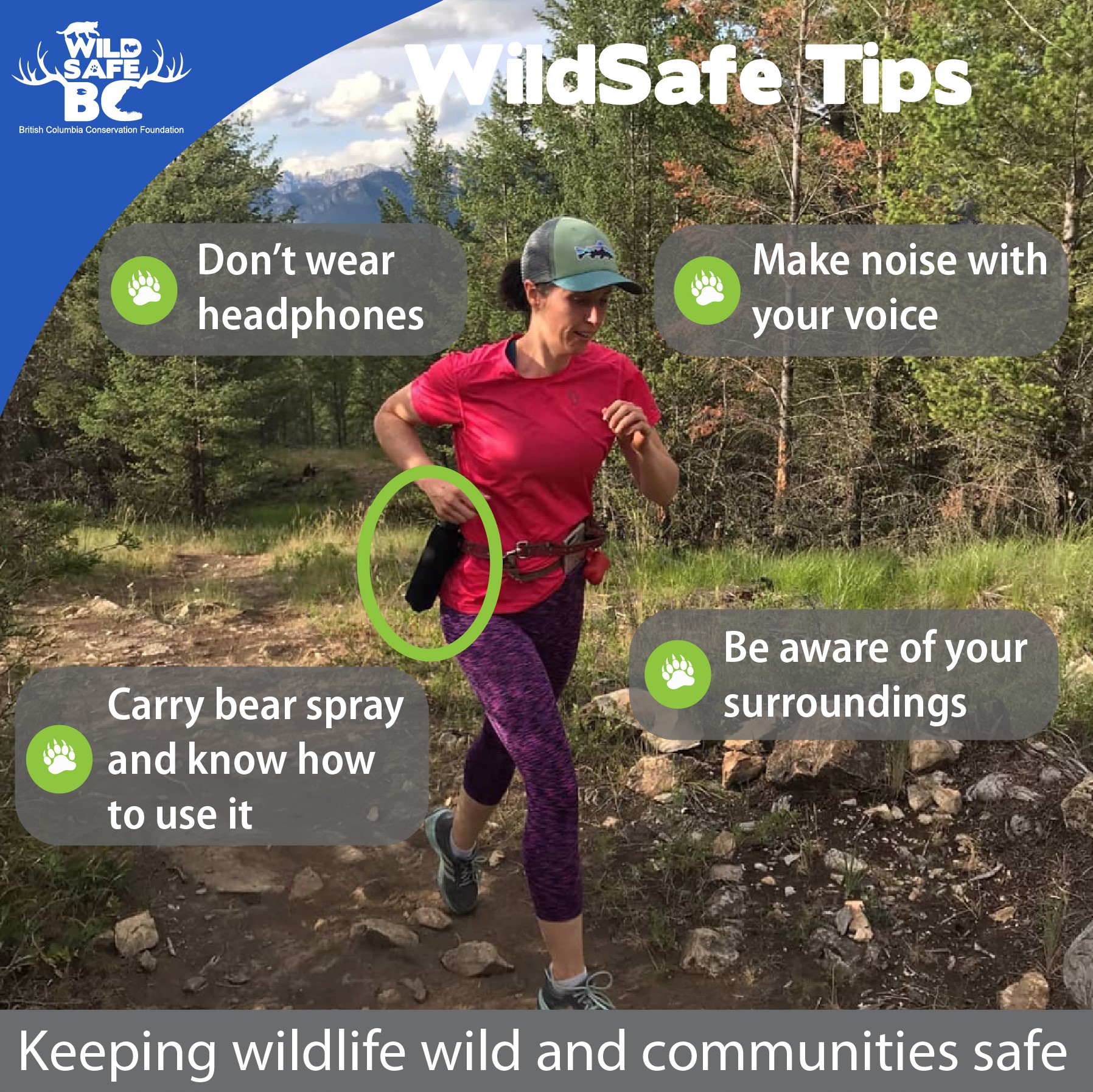Reducing Conflict Where We Play
WildSafeBC strives to learn and to share about how we can reduce human-wildlife conflicts in all of our day-to-day activities. We must all think about how we live, work, play and grow with respect to wildlife.
BC is one great big natural playground. We enjoy some of the world’s best mountain biking, hiking, canoeing, back country skiing, and the list goes on and on. While we have these great outdoor opportunities, we must also be mindful of the fact that we share the outdoors with all types of wildlife. It is our responsibility to ensure that our recreational pursuits do not contribute to human-wildlife conflict within the province.
For the most part, wildlife wants nothing to do with humans. But there are times when wildlife may react defensively to your presence, and in the very rare instance view you as a menu item. Additionally, if wildlife has become habituated to humans or food conditioned, then the risk of human-wildlife conflict can be increased.
Specific information on the various species can be found under our species pages but general rules include:
1. Plan ahead. All of BC is considered wildlife country. Know what type of wildlife you are likely to encounter while recreating and take the necessary steps to avoid an encounter. If you do encounter wildlife, know how to react appropriately. When exploring trails or camping, check for recent wildlife alerts or notices that may be posted on the campground websites. When you arrive at your location, check the local Visitor's Centre for recent information.
2. Know the wildlife’s timetable. Are they in the area year-round and can you schedule your recreation in that area to be at a time when the wildlife won’t be there? Or is there a daily routine for the wildlife? Often mid-day is a good time to avoid many types of larger predators and conversely, dawn and dusk, are inopportune times to be in the area.
3. Wildlife avoidance is better than having to deal with wildlife directly. Whether it is a bear, cougar or a defensive cow moose, it is always better to have avoided a confrontation than to have to try to survive one.
4. Take wildlife safety training. Specific knowledge about bear, cougars, rattlesnakes and other species will allow you to carry out your job safely.
5. Carry bear spray with you at all times. Bear spray is effective against all large mammals and should be your first choice as a deterrent. Ensure that you keep the bear spray accessible regardless of your activity. Learn more about bear spray and watch our safety video.
6. Certain sports, like mountain biking or running, increase your risk of encountering wildlife (due to your speed and lack of sound) - recognize this and increase your vigilance.




